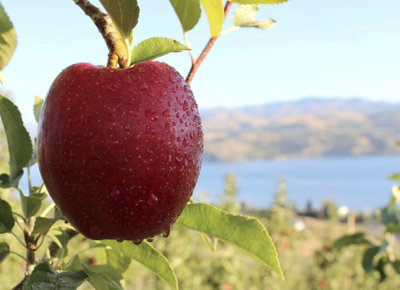WENATCHEE — As international supply chains slow, fruit growers are looking at landing spots for their crops that don’t require a ship. However, those alternatives are also plagued with difficulties.
“There’s no surety of shipping at this time,” said Steve Reinholt, Oneonta’s export sales manager. “Things are getting delayed, if you can even get them shipped.”
The problems with international exports include a lack of shipping containers, no space on ships and a backlog in ports worldwide.
As an industry, Reinholt said growers in the state typically export about 30% of cherries, pears, apples and other fruits overseas. For Oneonta, closer to 40% of its product is loaded onto ships and sent to international markets.
“This year, we’re not going to be anywhere near that,” Reinholt said.
Domestically, the scarcity of shipping containers and a shortage of truck drivers are bogging down exports.
“Vessels are delayed massively along the West Coast of the U.S.,” Reinholt said.
Riley Busheu is the director of exports at the Northwest Horticultural Council, a nonprofit that works on national and international issues that impact the fruit industries of Idaho, Oregon and Washington. Busheu said the industry has seen these issues for months.
“The challenges that the tree fruit industry is seeing, our shippers are seeing, and some of what you’re seeing generally is that container availability continues to be a challenge,” Busheu said. “If you can get one, they’re delayed or (there are) scheduling challenges.”
When exporters do get a booking for containers and ships, delays at ports add another clog to the system.
“Everything is backlogged, so it makes it more difficult to move that product out the door,” Busheu said. “And all this stuff just kind of stacks up on top of each other.”
The insufficient supply of shipping containers means that shipping rates for exporters have also increased.
“Costs are going up exponentially as there’s less and less available shipping capacity,” Reinholt said, adding that those issues could persist into next year.
“There’s no switch to flip and fix it,” he said. “It’s going to be a long-haul deal. It’s just going to take a while to work its way out.”
West Mathison, president and CEO of Stemilt Growers, said in a Friday email the fruit industry is especially damaged by delayed shipping times.
“The supply chain challenges from the ocean shipping congestion is a significant headwind for agriculture, especially with perishable items like fruit,” Mathison wrote. “Our products can’t sit in a foreign port for an extra four weeks and maintain the freshness that consumers want.”
As a result of the slowdown, Stemilt has reduced its expected export shipments for the next 12 months.
“Thankfully, the apple crop is smaller this year and we’ll find enough export opportunities with Canada and Mexico,” Mathison said.
Stemilt isn’t the only local fruit exporter looking to Mexico and Canada. Reinholt said Oneonta is also looking both north and south of the border to move its product.
“We have two that don’t require vessel shipping — we have Mexico and we have Canada,” Reinholt said. “Both of those are being impacted to a degree by transportation as well because there is a domestic truck shortage.”
The light at the end of the tunnel is not yet visible, but Reinholt said things will eventually work themselves out.
“In the fruit business, we’re inherently optimistic or we wouldn’t be doing this,” he said. “If the ports can get themselves cleared out and get the backlog of vessels and the backlog of containers out of the port and get things back on a semblance of normal, I believe the thing will get back to normal.”









(0) comments
Comments are now closed on this article.
Comments can only be made on article within the first 3 days of publication.